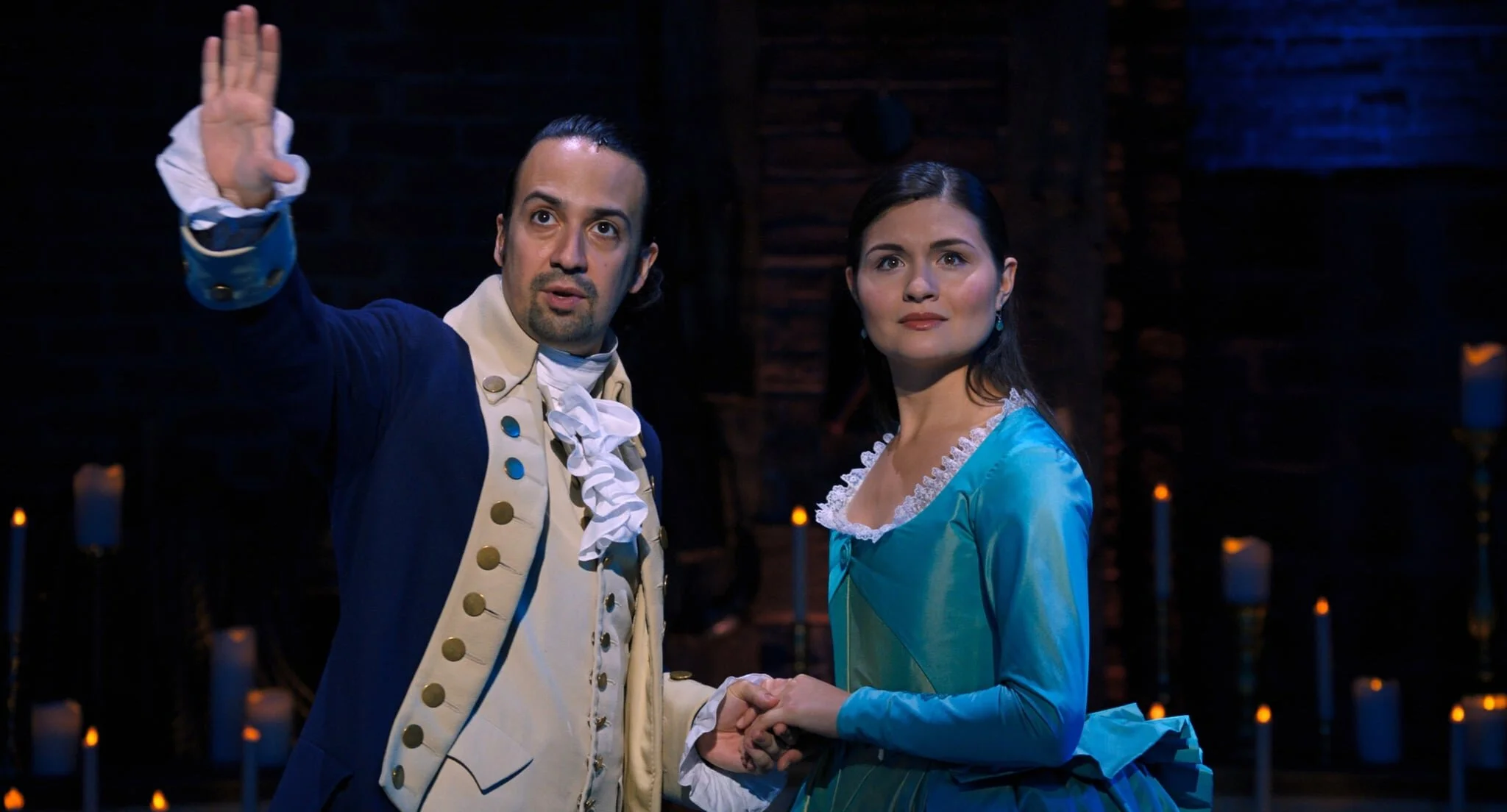Is Hamilton problematic?
Photo credit: Disney+
In July 2015, Hamilton: An American Musical opened on Broadway and changed musical theatre forever. The show has been a smash hit on both sides of the Atlantic, winning numerous awards, and a pro-shot is now available to stream on Disney+. However, the recording has also come out at a very interesting time; one when we are starting to re-examine history as we know it. This has caused many to criticise Hamilton’s depiction of the past, but is this warranted?
For those who don’t know, Hamilton tells the story of Alexander Hamilton as he becomes one of America’s founding fathers. Hamilton is depicted as a poor but ambitious immigrant fighting for social change but in reality, his values weren’t as progressive as the show might lead us to think. In fact, he was closely associated with the Alien and Sedition Act, which made it harder for someone to become a US Citizen and allowed states to deport new arrivals. He did speak for six hours at the constitutional convention but whilst doing so, pitched several elitist ideas such as inheriting political titles.
The treatment of slavery in Hamilton is also a issue. During the 1700s, the enslavement of black Americans was still commonplace in the USA and though there are some references to this in the lyrics (‘We know who’s doing the planting’), the issue isn’t really discussed. A surprising choice given the racially diverse cast, all of whom are playing historically white figures. We don’t know if Hamilton owned slaves himself but the Schylers, Thomas Jefferson, James Madison, John Jay and George Washington certainly did. It’s also likely that Hamilton was complicit in the slave trade during his youth in the Caribbean.
Photo credit: Buyenlarge/Getty Images
In comparison, Bloody Bloody Andrew Jackson is also a musical based around American history and it takes a considerably different approach to its main character. President Andrew Jackson is often credited with giving democracy to the common man, but he was also responsible for the Trail of Tears. An act that forced Native Americans off their land, killing thousands in the process. And the show doesn’t shy away from either of these facts. In comparison, Hamilton takes a far less critical look at the past.
Ishmael Reed, a renowned satirical writer, responded to Hamilton in 2019 with his play, The Haunting of Lin-Manuel Miranda. During the piece, the composer is confronted with the plight of the Native Americans and Africans who were excluded from his work. Reed’s argument is that the musical continues the idealism of the past, rather than condemning it.
This fictionalisation of real events has led to some fascinating side-effects within the Hamilton fandom. This has included fan art that depicts the presidents as trans, and fan-fiction that reimagines them as cannibalistic mermaids. Yes, really! At first this might seem like innocent, if odd, fun but it further waters down the reality of the past. Further erasing history’s more challenging elements, even more than the production itself.
But despite it’s revised version of the past, Hamilton has managed to make a positive change within the theatre industry. Diversity has always been a big issue on Broadway and its casting has opened up opportunities to many underrepresented groups, allowing more people than ever to see themselves on stage. For example, it took 15 years for Wicked to cast a woman of colour in the role of Glinda. Despite being painted green, and being discriminated against because of her skin colour, the majority of Elphaba’s have also been white.
Photo credit: Michael Kushner
Looking into the real history of America can be deeply uncomfortable but it’s also something that we need to confront, especially if we want to challenge the racial issues that still exist today. Hamilton is an exquisitely crafted musical with intelligently written lyrics and a moving story, that we can still appreciate whilst critiquing other elements. By bringing an obscure figure back into the public consciousness, Lin-Manual Miranda has asked us to question which stories we listen to. And now it’s time for us to do the same.



